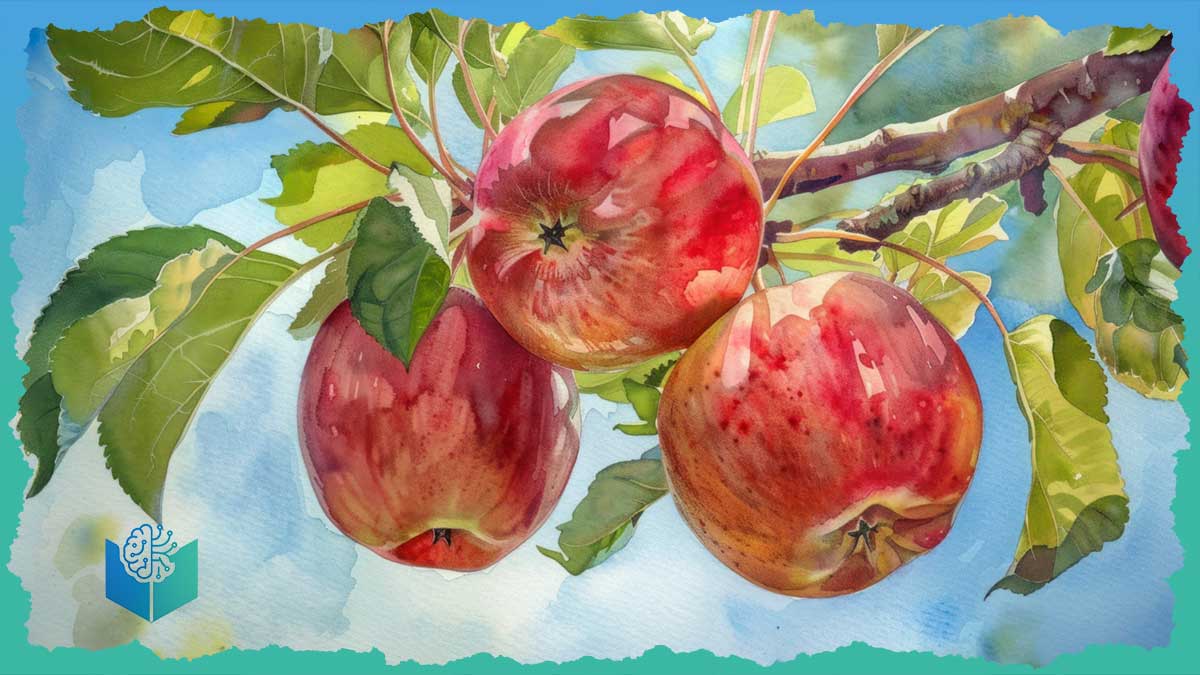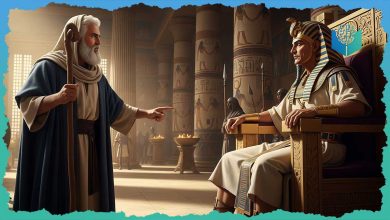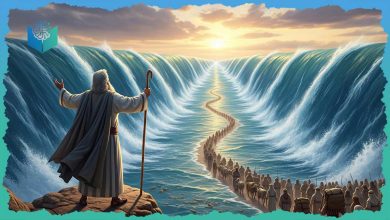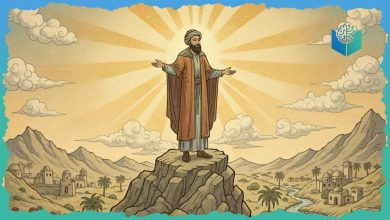The First Prophet

The narrative of Prophet Adam (PBUH) stands as a foundational pillar in Islam, offering profound insights into the creation of humanity, the nature of temptation, and the path to repentance. Revered as The First Prophet of Islam and the father of all humankind, Adam in Islam embodies the very essence of human potential, vulnerability, and the mercy of Allah. In Islamic belief, he is also recognized as the first prophet in the world, chosen by Allah to guide humanity from its very beginning. His story, beautifully detailed across numerous chapters in the Quran, is far more than an ancient tale; it’s a timeless allegory for every human being’s journey of life, faith, and seeking divine forgiveness. This article will delve into the profound events surrounding Adam in the Quran, exploring his miraculous creation of Adam, the pivotal moment of Adam and Eve’s Islamic story, and the enduring lessons of repentance.
Scholars and believers alike often reflect on Adam’s unique position in human history, asking about details such as Hazrat Adam date of birth and other aspects of his earthly life. While such specifics are not recorded in authentic Islamic sources, the spiritual significance of his creation remains central to understanding humanity’s purpose.
The Miraculous Creation of Adam (PBUH)
The Creation of Adam is a central theme in the Quran, highlighting Allah’s absolute power and wisdom. Unlike other beings, Adam was fashioned directly by the hand of God, signifying his unique status.
Formed from Earth
The Quran describes Adam’s physical creation from various elements of the earth, emphasizing humanity’s connection to the soil and its humble origins.
Quranic Account:
“And [mention, O Muhammad], when your Lord said to the angels, ‘Indeed, I will create a human being from sounding clay of altered black mud.'” (Quran 15:28). Other verses specify that he was created from dust, clay, and water, ultimately becoming molded clay. This intricate process of formation from raw earth material gave Adam his physical form, unique among all creatures.
Significance:
This mode of creation signifies humanity’s inherent connection to the earth while also setting us apart from other creations. It underscores that despite our physical origins, there is a divine spark that elevates us. This detailed account in the Quran provides insights into the physical beginnings of mankind, a powerful testament to the diversity of Allah’s creation.
Islamic tradition also discusses physical descriptions attributed to Adam, including narrations that mention the Prophet Adam height, describing him as exceptionally tall compared to later generations of humanity. These narrations emphasize the gradual physical change of humankind over time while reinforcing Adam’s unique creation.
The Breath of Life and Divine Spirit
Beyond the physical form, what truly distinguishes Adam and his descendants is the divine breath, imbuing them with life, intellect, and a spiritual essence.
Quranic Account:
“So when I have proportioned him and breathed into him of My [created] spirit, then fall down to him in prostration.” (Quran 15:29). This moment marked Adam’s transformation from inert clay into a living, thinking, and feeling being.
Significance:
The infusion of Allah’s spirit elevates humanity, granting consciousness, free will, and the capacity for knowledge and moral discernment. It is this divine breath that grants humans their unique dignity and their role as Allah’s vicegerents on Earth. The prostration of angels to Adam, commanded by Allah, further emphasized this elevated status, acknowledging the profound potential imbued within him. This event also introduced Iblis (Satan), who refused to prostrate due to arrogance, setting the stage for future temptations.

Adam and Eve: Temptation and the Fall
The Adam and Eve Islamic story in the Quran is a narrative of innocence, divine command, and the first instance of human fallibility. It highlights the nature of temptation and the ever-present adversary, Iblis.
Dwelling in Paradise and the Forbidden Tree
Adam and his wife, Eve (Hawwa), lived in a beautiful garden, a place of bliss and abundance, where they were given free rein except for one prohibition.
Quranic Account:
“And We said, ‘O Adam, dwell, you and your wife, in Paradise and eat therefrom in [ease and] abundance from wherever you will but do not approach this tree, lest you be among the wrongdoers.'” (Quran 2:35). This single restriction was a test of obedience, a crucial element in understanding free will.
Significance:
This command established the concept of boundaries and responsibility. It was a test of their commitment to Allah’s command, even amidst boundless freedom. The very presence of a prohibition, however minor, introduces the element of choice, which is fundamental to human accountability.
The Whisper of Satan and Disobedience
Despite the clear warning, Satan, driven by envy and defiance, found a way to tempt Adam and Eve.
Quranic Account:
“But Satan caused them to slip out of it and removed them from that [condition] in which they had been. And we said, ‘Descend, being enemies to one another. And for you on the earth will be a place of settlement and enjoyment for a time.'” (Quran 2:36). Satan whispered to them, tempting them with promises of immortality and eternal dominion if they ate from the forbidden tree. They succumbed to this temptation, driven by a desire for something they were told not to have.
Significance:
This moment illustrates the cunning nature of Satan and the susceptibility of humans to temptation. Crucially, in the Adam and Eve Islamic story, both Adam and Eve shared in the responsibility for the transgression, and neither is singled out as solely to blame. Their disobedience was a learning experience, paving the way for the concept of repentance and forgiveness. Unlike some other religious traditions, the “fall” in Islam is not viewed as an inheritance of “original sin” that burdens all descendants; rather, it is seen as a personal transgression that humanity can overcome through repentance.

Repentance, Forgiveness, and Earthly Vicegerency
Following their disobedience, Adam and Eve recognized their error and turned to Allah in sincere repentance. This act became a cornerstone of humanity’s relationship with its Creator.
Seeking Forgiveness
Immediately after their transgression, Adam and Eve felt remorse and sought divine mercy.
Quranic Account:
“They said, ‘Our Lord, we have wronged ourselves, and if You do not forgive us and have mercy upon us, we will surely be among the losers.'” (Quran 7:23). This simple, heartfelt prayer became the model for all future acts of repentance. Allah, in His infinite mercy, taught them specific words of supplication.
Significance:
Their repentance highlights Allah’s boundless mercy and His willingness to forgive those who sincerely turn to Him. It establishes that sin is not unforgivable, and sincere remorse is the key to spiritual cleansing. This principle of seeking forgiveness is central to Everything about Islam.
Descending to Earth
Their expulsion from Paradise was not a punishment without purpose but a transition to a new phase of existence on Earth, where humanity would fulfill its divinely appointed role.
Quranic Account:
“He said, ‘Descend from it, [all of you], being enemies to one another. But if there comes to you from Me guidance, then whoever follows My guidance will neither go astray nor suffer.'” (Quran 20:123). Earth became their dwelling, a place of trial, learning, and growth.
Significance:
Earth was destined to be the arena where humanity would live, strive, and prove its worth as prophets of God and their followers. Adam was sent as the first prophet in Islam, entrusted with guiding his descendants toward monotheism and righteousness. As the first prophet in the world, his mission marked the beginning of divine guidance on Earth. His story, therefore, is not just about a fall from grace, but about the inauguration of human history on Earth, guided by divine revelation and the promise of ultimate return to Allah. The Story of Prophet Adam thus becomes a narrative of hope, emphasizing that every individual has the capacity for repentance and the opportunity to earn Allah’s pleasure.
Conclusion
The comprehensive Story of Prophet Adam in the Quran serves as a profound lesson for all humanity. It teaches us about the dignity of our creation, the reality of temptation from internal desires and external whispers (Satan), and the ever-open door of repentance. As The First Prophet of Islam, Adam’s journey provides a timeless framework for understanding human nature, our relationship with Allah, and the path to spiritual fulfillment, reminding us that even after missteps, forgiveness and guidance are always available.
Q&A
What was the real story of Adam and Eve?
The real story of Adam and Eve in the Quran tells of their creation by Allah, their life in Paradise, and their test with the forbidden tree. They repented after slipping, and Allah forgave them, showing His mercy and guidance.
What does Adam mean?
What year was Adam born?
The exact year of Prophet Adam's (peace be upon him) birth is unknown and not recorded in the Quran, Hadith, or historical sources. Discussions about Hazrat Adam date of birth remain speculative, as Adam’s existence predates recorded human history and does not align with conventional historical timelines.
How did Allah make Adam?
Allah created Adam from clay, molding his physical form. He then breathed His spirit into him, giving him life and a unique soul.
Prophets and Messengers in Islam
🔗 Prophets and messengers in Islam (Wikipedia)
All 25 Prophets Mentioned in the Quran
🔗 Complete Story of All 25 Prophets (MyIslam.org)
Islam and Mormonism
🔗 Islam and Mormonism — Prophets Section (Wikipedia)
Quran.com – Moses Splitting the Sea





